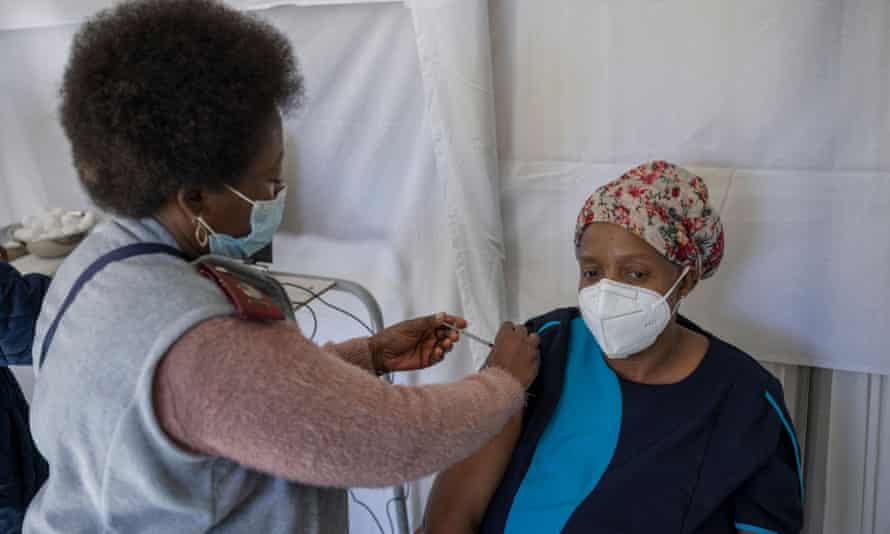Analysis: the failings of the Covax programme, logistical issues and governments’ own inadequacies are making a bad situation worse

Only 1% of the 1.3 billion vaccines injected around the world have been administered in Africa – and that comparative percentage has been declining in recent weeks. It is a stark figure that underlines just how serious a problem global vaccine inequity has become. But the answer for the developing world is not as simple as delivering more vaccines.
From Africa to Latin America, Asia and the Caribbean, the same issues have been replicated. On top of finding enough doses, there have been logistical difficulties with delivery, problems over healthcare infrastructure and, in some countries, public hesitancy towards vaccines.
Africa’s lack of vaccines – and the erratic supply of those that are eventually delivered – remains the No 1 challenge, however. Only 28 million doses have been delivered on the continent so far – that’s less than 2% of the continent’s population – at a time when some wealthier countries have vaccinated well in excess of half their populations.
One issue is that 40 African countries, as the World Health Organization recently pointed out, had been relying on the Covax facility, the scheme designed to deliver cheap doses to promote vaccine equality. Supplies were supposed to come from the Serum Institute of India but have now been diverted for domestic use in India.
The WHO announced on Thursday that Africa needed at least 20 million AstraZeneca doses in the next six weeks to give second shots to all those who had received a first dose. In addition, another 200 million doses of approved vaccines are needed to enable the continent to vaccinate 10% of its population by September.
“Africa needs vaccines now,” Dr Matshidiso Moeti, WHO regional director for Africa, said last week. “Any pause in our vaccination campaigns will lead to lost lives and lost hope.
“It’s too soon to tell if Africa is on the cusp of a third wave. However, we know that cases are rising, and the clock is ticking so we urgently appeal to countries that have vaccinated their high-risk groups to speed up the dose-sharing to fully protect the most vulnerable people.”
Problems with supplies have affected vaccine programmes in countries such as Kenya, where warnings have been made that doses may be delayed because of shortfalls, although some new doses were expected to arrive this weekend.
The vaccine rollout in South Africa, which is currently concerned about a third wave as it approaches winter, has been a case in point. The country, which has the highest reported load of infections on the continent, switched to other vaccines from AstraZeneca doses over efficacy fears following a small study.
While South Africa’s overall goal was to vaccinate 67% of its 60 million people by February next year, so far only 1.3 million of the 30 million doses of Pfizer vaccine it purchased have been delivered, with a further 4.5 million expected by the end of June. The country has also ordered 31 million doses of the Johnson & Johnson vaccine, which have also not yet arrived.
The same issues are being seen in Latin America and the Caribbean, a region that accounts for only 8% of the world’s population but 30% of all reported Covid-19-related deaths globally, and where countries like Peru have only managed to vaccinate some 5% of the population.
Governance has also been an issue. In Nepal, the government’s slow, haphazard and opaque vaccine procurement problem has contributed to the crisis in the Himalayan country.
Even India, home to the Serum Institute, the world’s largest manufacturer of vaccines, has struggled to produce enough vaccines for its own population, leading to the diversion of doses once slated for poorer countries through Covax.
The other major issue with vaccination programmes in the developing world has been logistics. In Malawi, for instance, some vaccines passed their expiry date before they could be used.
Poor countries tend to have inadequate health infrastructure. An assessment by the WHO’s Africa region at the end of April pointed out that while some countries have managed an “exemplary rollout” of available vaccines, others have struggled. Nine countries, it said, had given less than a quarter of their doses and 15 countries have used less than half.
“Commitment and domestic resourcing is crucial,” said Dr Phionah Atuhebwe, WHO Africa’s new vaccines introduction officer.
She said: “When the Republic of Côte d’Ivoire applied to receive vaccines from Covax that require ultra-cold chains, the government was willing to send the presidential jet to go and get the kit. That is the kind of commitment our countries need.”
And as health experts point out, where campaigns have been most successful in delivering doses is in countries – such as Angola – that have been best prepared by mapping vulnerable populations, screening people and scheduling appointments in advance.

Leave A Comment